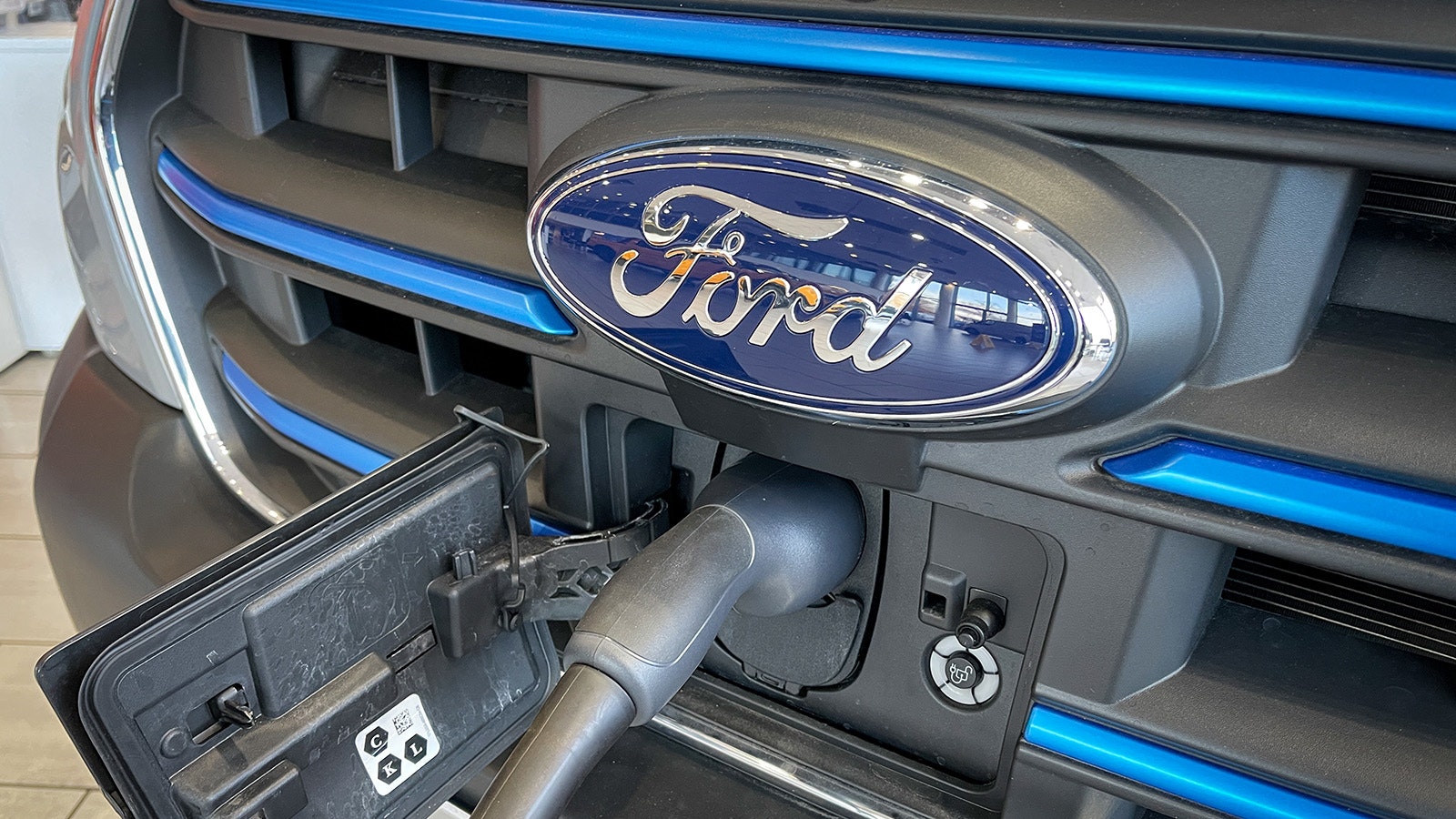Ford Motor Co. announced Thursday that it lost $2.1 billion in 2022 on its electric vehicle business, a loss offset by $10 billion in operating profit from its gas-powered lines and fleet business.
The company expects to lose $3 billion this year on its EVs, according to a company briefing for investors and analysts.
The losses were highlighted as a result of changes in the company’s reporting system. Rather than sorting financial information by geographic regions, the company sorts it by automotive customers. This gives Wall Street better clarity, the company explained, in understanding the cost of the company’s transition to EVs.
Capital Expenditures
The company has invested billions of dollars in capital upgrades to start its planned transition to an all-electric line, so some analysts weren’t expecting profits on the new business.
Vince Bodiford, publisher of TheWeekendDrive.com based in Cheyenne, told Cowboy State Daily that the way Ford discussed the losses today suggests it’s a larger issue than just development costs.
General Motors announced earlier this month the company is looking to cut $2 billion in costs over the next two years, including offering buyouts to salaried employees, as GM makes the transition to EVs.
“There’s just a lot going on in the car business right now. I don’t know how much of it can be pinned exclusively on capital costs with EVs,” Bodiford said.
New car sales are a challenge now as well, Bodiford said. With interest rates higher, buyers need higher credit scores.
“That really impacted a lot of revenue and contributed to some of the $2 billion loss. I think it’s the car business in general,” Bodiford said.
In a press release published Thursday, Ford CEO Jim Farley said that the company had expected to do better in 2022. Ford’s earnings for the year came to $10.4 billion, less than expected, and supply chain issues were cited as a contributing factor.
Writing On The Wall
Aaron Turpen, a Cowboy State Daily automotive writer and supporter of electric vehicles from Cheyenne, told Cowboy State Daily that the losses were what one would expect when the company is spending so much on these new lines. The losses, Turpen noted, haven’t impacted the company’s Wall Street valuation.
“They spent a billion dollars just on one assembly plant,” Turpen said.
He expects other manufacturers that are investing in a transition to EVs will post similar losses.
Turpen said that Tesla spent several years trying to achieve profitability as a new startup. Ford and GM will have the benefit of not starting from scratch, but it’s no surprise they haven’t turned a profit this early into their transitions to EVs.
“They’re just having to change a whole bunch of the paradigm,” Turpen said.
He said it’s also telling that their legacy auto sales are offsetting the EV losses. Their fleet sales of F-150s are doing well, as are SUVs.
“I don’t think the electrics are going to take over really soon, but I think the automakers are seeing the writing on the wall. So they’re going that way,” Turpen said.
Waiting In The Wings
Bodiford isn’t so certain that an all-EV future will materialize as expected for Ford and other large auto manufacturers.
The companies used to tool their production based on consumer demand, he said, but now production is being driven by the regulatory environment coupled with incentives for EV purchases.
He described it as an “if-you-build-it-they-will-come” approach.
“So if they show up at a showroom and the only cars to buy are electric, then magically we’ll have this all-EV future. I don’t think it’s that simple,” Bodiford said.
While GM, Chrysler and Ford are betting on that future, Bodiford said companies like Kia, Hyundai, Toyota and Honda are waiting in the wings to fill a demand that American automakers are planning to gradually abandon. It’s similar to what happened in the 1980s when foreign-made cars gained so much market share over American manufacturers.
“They’re going to clean Detroit’s clock, and I’m afraid that’s going to happen again,” Bodiford said.





